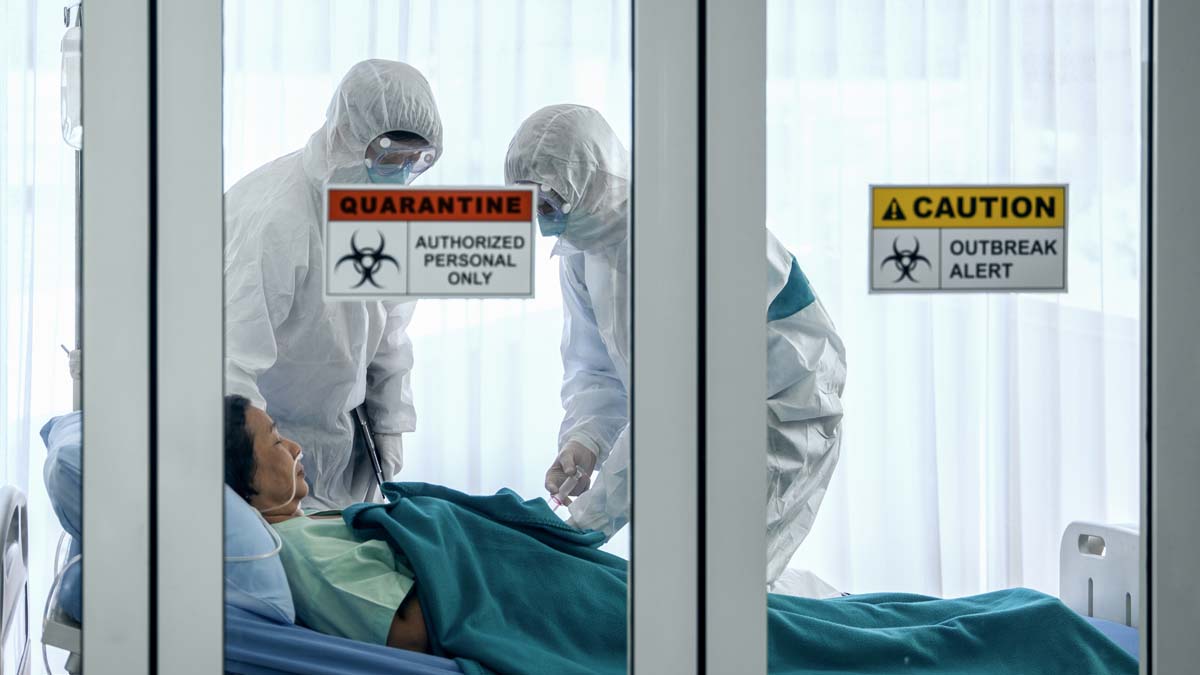Joint statement by UNDP, UNFPA, UNICEF, WFP and WHO on humanitarian supplies crossing into Gaza
A first, but limited, shipment of life-saving humanitarian supplies from the United Nations and the Egyptian Red Crescent entered Gaza today on 20 trucks, passing through the Rafah Crossing. It will provide an urgently needed lifeline to some of the hundreds of thousands of civilians, mostly women and children, who have been cut off from water, food, medicine, fuel and other essentials. But it is only a small beginning and far from enough. More than 1.6 million people in Gaza are in critical need of humanitarian aid. Children, pregnant women and the elderly remain the most vulnerable. Nearly half of Gaza’s population are children. With so much civilian infrastructure in Gaza damaged or destroyed in nearly two weeks of constant bombings, including shelters, health facilities, water, sanitation, and electrical systems, time is running out before mortality rates could skyrocket due to disease outbreaks and lack of health-care capacity. Hospitals are overwhelmed with casualties. Civilians face mounting challenges in accessing essential food supplies. Health facilities no longer have fuel and are running on small amounts they have secured locally. These are expected to run out in the next day or so. Water production capacity is at 5 per cent of normal levels. Pre-positioned humanitarian supplies have already been depleted. Vulnerable people are at greatest risk and children are dying at an alarming rate and being denied their right to protection, food, water and health care. Nearly one-third of the population of Palestine was food insecure before this conflict in Gaza. Today stocks in shops are nearly exhausted and bakeries are closing, while tens of thousands of people are displaced and unable to cook or safely purchase food. We call for a humanitarian ceasefire, along with immediate, unrestricted humanitarian access throughout Gaza to allow humanitarian actors to reach civilians in need, save lives and prevent further human suffering. Flows of humanitarian aid must be at scale and sustained, and allow all Gazans to preserve their dignity. We call for safe and sustained access to water, food, health – including sexual and reproductive health – and fuel, which is necessary to enable essential services. We call for the protection of all civilians and civilian infrastructure in Gaza, including health-care facilities. We call for the protection of humanitarian workers in Gaza who are risking their lives in the service of others. And we call for the utmost respect of international humanitarian law by all parties. Gaza was a desperate humanitarian situation before the most recent hostilities. It is now catastrophic. The world must do more.
WHO calls for immediate release, access to, and medical support for hostages taken by Hamas
Gravely concerned by the humanitarian and health situation facing approximately 200 people, including health workers and up to 30 children, abducted from Israel by Hamas and other armed groups on 7 October 2023, the World Health Organization today reiterated its call for the immediate release of all the hostages, along with urgent access to each of them and delivery of medical care. The call was made by WHO Director-General Dr Tedros Adhanom Ghebreyesus following discussions today with an Israeli non-governmental organization, the Hostages and Missing Families Forum, that represents families of the abducted people. “We met today with families of people abducted from southern Israel on 7 October and heard firsthand the tragedy, trauma and suffering they are facing,” said Dr Tedros. “There is an urgent need for the captors of the hostages to provide signs of life, proof of provision of health care and the immediate release, on humanitarian and health grounds, of all those abducted.” “Many of the hostages, including children, women and the elderly, have pre-existing health conditions requiring urgent and sustained care and treatment. The mental health trauma that the abducted, and the families, are facing is acute and psychosocial support is of great importance.” Dr Tedros said the International Committee of the Red Cross (ICRC) should be granted immediate access to the hostages to understand their health status. WHO stands ready to provide the ICRC, which is mandated to provide support to hostages in conflict situations, with any health support for the hostages, Dr Tedros added. “I thank the families for sharing their heartbreaking stories. I committed, on behalf of WHO, to do all we can to support the health and humanitarian needs of those being held captive. All civilians who are suffering in this conflict must be protected.” Dr Tedros added: “We will do everything in our power as WHO to protect and promote the health of all people as that is the mission of our Organization: to care for each and everybody’s health no matter the conditions and circumstances. We call on WHO Member States, humanitarian partners, all other relevant parties, and the public at large to put the health of people first and foremost in their minds and take immediate action to end the ongoing suffering.”
WHO: civilians, patients, and health workers in Gaza spend night in darkness and fear
During a night of intense bombardment and ground incursions in Gaza, with reports of hostilities still continuing, health workers, patients and civilians have been subject to a total communication and electrical blackout. WHO reiterates its calls for an immediate humanitarian ceasefire, and reminds all parties to the conflict to take all precautions to protect civilians and civilian infrastructure. This includes health workers, patients, health facilities and ambulances, and civilians who are sheltering in these facilities. Active measures must be taken to ensure they are not harmed and safe passage provided for the movement of desperately needed medical supplies, fuel, water and food into and across Gaza. Reports of bombardment near the Indonesia and Al Shifa hospitals are gravely concerning. WHO reiterates that it is impossible to evacuate patients without endangering their lives. Hospitals across Gaza are already operating at maximum capacity due to the injuries sustained in weeks of unrelenting bombardment, and are unable to absorb a dramatic rise in the number of patients, while sheltering thousands of civilians. Health workers who have stayed by their patients’ sides face dwindling supplies, with no place to put new patients, and no means to alleviate their patients’ pain. There are more wounded every hour. But ambulances cannot reach them in the communications blackout. Morgues are full. More than half of the dead are women and children. WHO has not been able to communicate with its staff in Gaza, nor have other agencies. Furthermore, WHO is trying to gather information on the overall impact on civilians and health care. WHO appeals to the humanity in all those who have the power to do so to end the fighting now, in line with the UN resolution adopted yesterday, calling for a humanitarian truce, as well as the immediate and unconditional release of all civilians held captive.

WHO statement on heated tobacco products and the US FDA decision regarding IQOS
WHO takes this opportunity to remind Member States that are Parties to the WHO Framework Convention of Tobacco Control (FCTC) of their obligations under the Convention. Heated tobacco products are tobacco products, meaning that the WHO FCTC fully applies to these products. (Decision FCTC/COP8(22)) Specifically, Article 13.4(a) obliges Parties, to prohibit "all forms of tobacco advertising, promotion and sponsorship that promote a tobacco product by any means that are false, misleading or deceptive or likely to create an erroneous impression about its characteristics, health effects, hazards or emissions." WHO reiterates that reducing exposure to harmful chemicals in Heated Tobacco Products (HTPs) does not render them harmless, nor does it translate to reduced risk to human health. Indeed, some toxins are present at higher levels in HTP aerosols than in conventional cigarette smoke, and there are some additional toxins present in HTP aerosols that are not present in conventional cigarette smoke. The health implications of exposure to these are unknown. On 7 July 2020, the US FDA authorized the marketing of a heated tobacco product, the IQOS Tobacco Heating System, under the Federal Food, Drug and Cosmetic Act. This Act requires pre-market authorization of new tobacco products before they can be placed on the US market. The US FDA statement noted that, “Even with this action, these products are not safe nor “FDA approved“. The exposure modification orders also do not permit the company to make any other modified risk claims or any express or implied statements that convey or could mislead consumers into believing that the products are endorsed or approved by the FDA, or that the FDA deems the products to be safe for use by consumers.” The US FDA authorization rejected claims that the use of the product is less harmful than another tobacco product or reduces risks to health. The FDA orders also require the company to monitor youth awareness and use of the products to help ensure that the marketing of the MRTPs does not have unintended consequences for youth use. The company must also keep the FDA apprised of efforts to prevent youth access and exposure. Given that health may be affected by exposure to additional toxins when using HTPs, claims that HTPS reduce exposure to harmful chemicals relative to conventional cigarettes may be misleading. Moreover, the relevant orders grant a temporary market authorization within the US and are based on factors specific to the US, which is not a Party to the WHO Framework Convention on Tobacco Control (WHO FCTC). All tobacco products pose risks to health and WHO urges full implementation of the WHO FCTC. Rigorous implementation will support quit attempts and reduce initiation by non-users of tobacco products, especially the young. WHO recommends cessation of all tobacco use with interventions, such as brief advice from health professionals, national toll-free quit lines, nicotine replacement therapies and cessation interventions delivered via mobile text messaging.

